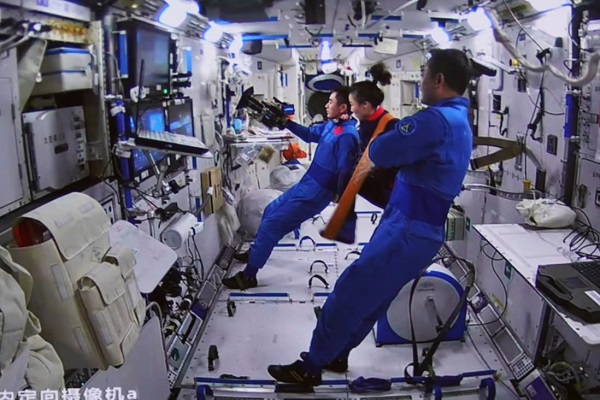Beijing, (Asian independent) Chinese researchers are developing ultra-thin diapers for the country’s astronauts.
While there is a toilet on the space station, astronauts require diapers during lift-off, landings, spacewalks and extravehicular activities.
The currently used product is, however, causing discomfort due to its thickness — about 26mm (1 inch), the South China Morning Post reported.
In the Chinese peer-reviewed Manned Spaceflight journal, researchers noted that the thickness could be significantly reduced to 7mm.
“Feedback from astronauts is that the current space nappies are too thick and cause a strong sense of pressure on the underside,” the researchers wrote in the paper.
“As astronauts face increased workloads and much longer working hours, it is critical to research a new product that is more comfortable and easier to wear,” they added.
According to Wang Tianhui, co-author of the study with Guangdong Yinyin Co, a company that supplies hygiene products for Chinese astronauts, China’s astronauts would wear the thinnest nappies in orbit.
The new space nappy would be more than a third thinner than the current product and hold more than 1kg of urine, the report said.
“It is thinner, more comfortable and has better absorption capacity,” said Wang, head of the company’s research team. “Globally, it has the best absorption capacity per unit volume.”
Wang said they had recommended this product to China’s space authorities, “but we don’t know when they will use it” because more testing was needed.
Currently, NASA astronauts use the maximum absorbency garment (MAG) that are pulled up like shorts. It has a capacity of up to 2 litres.
But the MAG was uncomfortable to wear and was regarded as too big, said Wang whose company has supplied space nappies for Chinese astronauts over the past decade.
“Astronauts care more about comfort and the 1kg of absorption capacity is sufficient for aerospace needs,” he said. “Until now, we haven’t received any complaints.”
China has an ambitious space plan for the next 10 years, including completing the construction of the Tiangong space station and launching two manned spacecraft each year.








